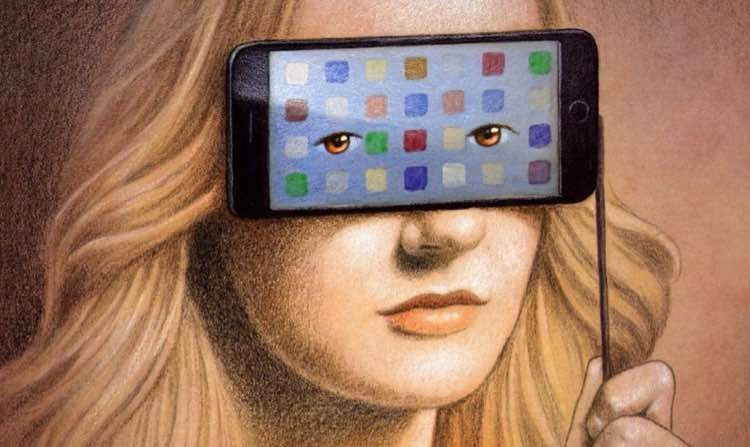The Digital Revolution is a fraud
The Digital Revolution is the widespread adoption of digital computing which began in the second half of the 20th century and continues to the present day. The Digital Revolution (also called the Third Industrial Revolution) is the era of computer bits.
There's a natural tendency to believe that technological advancement is good for humanity but history often disagrees. The Digital Revolution's claim is: we've become super-connected and productive; instead, its been an economic failure and made us worse human beings.
History's biggest fraud
The Agricultural Revolution is "history's biggest fraud" according to Yuval Noah Harri in his book Sapiens. He describes how Homo sapiens exchanged a rather good hunter-gather life for a miserable existence of back-breaking work, terrible diet and disease.
It's a mistake to believe living standards have improved throughout history by taking a linear path. Just as the Agricultural Revolution began as a disadvantage for most, so too has the Digital Revolution.
The productivity paradox
"You can see the computer age everywhere but in the productivity statistics."
Robert Solow (Economist)
Despite rapid growth in computing since the 1970s, worker productivity has gone down, this is what's referred to as the Productivity Paradox. You might ask: doesn't all this instant communication increase productivity? I suspect not.
Before computing, there was time to concentrate and contemplate. Now there are endless pointless tasks and notifications to attend to. There were clear productivity gains when farmers received tractors or maids electric washing machines. But there are no comparable gains when the office worker received the computer or smartphone.
The cause of downward productivity can't be solely attributed to the proliferation of computing, however, believing that we've become uber-productive with modern-day tech compared to the non-computer generation isn't true.
Technological progress has stalled
"We wanted flying cars, instead we got 140 characters."
– Peter Thiel
Peter Thiel is an entrepreneur, venture capitalist and contrarian thinker. He believes the lack of global growth is down to the decline in technological progress which stopped in the '70s. When you look at innovation across the Industrial Revolution it’s hard to disagree.
Electricity, cars, splitting the atom, steal, the telephone and sending people to the moon, to name (but) a few were major developments that changed society and drove productivity. Since the '70s other than computing, not much has happened. Thiel says "inventive minds are too focused on the internet and too neglectful of the world of things".
The Digital Revolution is dehumanising
One of my favourite passages from Sapiens is the reference to how wheat domesticated Homo sapiens:
"Within a couple of millennia, humans in many parts of the world were doing little from dawn to dusk other than taking care of wheat plants. It wasn't easy. Wheat demanded a lot of them. Wheat didn't like rocks and pebbles, so Sapiens broke their backs clearing fields. Wheat didn't like sharing its space, water and nutrients with other plants, so men and women laboured long days weeding under the scorching sun ... We did not domesticate wheat. It domesticated us."
Just as wheat stopped Homo sapiens from living a varied life, roaming freely and eating better food; smartphones changed how we socialised, they made us more insular, anxious and less empathetic.
A survey of 12,000 people across 8 countries by Intel Corporation found that 61% of young adults felt technology was dehumanising. This is what John Culkin (professor of communication) believed in his well-known quote: "We become what we behold. We shape our tools and then our tools shape us".
Mental health decline

Research by social psychologist Jonathon Haidt shows a sudden increase in the rates of depression, anxiety and self-harm (particularly girls) in the United States and the United Kingdom around 2012.
Teenagers use of social media increased most rapidly between 2009 and 2011, making social media the prime suspect. I was bullied at school, however, there was an "off switch". Nowadays it's 24/7 and instead of a punch and kick or the odd verbal insult, it's persistent harassment on Instagram, Facebook, Snapchat and Whatsapp.
Children aren't the only victims of social media's misery, adults persistently compare their lives and are made to feel inferior. As President Theodore Roosevelt said, “Comparison is the thief of joy” and social media has us comparing ourselves all-day long.
The wolf in sheep's clothing: Facebook
"The social media services that I and others have built over the past 15 years have served to tear people apart with alarming speed and intensity. At the least, we have eroded our collective understanding — at worst, I fear we are pushing ourselves to the brink of a civil war."
Tim Kendall (former director of monetization at Facebook)
Facebook is the one incarnation from the Digital Revolution that's been most devastating. Facebook peddles hate, spreads fake news, influences elections and is now responsible for genocide. When humans interact online it's often not nice. The comments section on Facebook, YouTube and Twitter has become a battleground of hate. Those that attack and write with venom are the same people that are polite and understated in real life. The unaccountability of communicating online has opened pandora's box, it brings out the worst in many of us.
The Amazon Effect
The "Amazon Effect" refers to the change in shopping patterns and impact on traditional bricks and mortar businesses by Amazon and online shopping. You can now buy anything you want and have it delivered tomorrow, which is pretty cool. The downside to this is fewer jobs, lower wages, and the high street becoming a catalogue of nail bars, betting shops and bargain discount stores.
Big tech firms are allergic to tax and take advantage of loopholes that aren't available to workers and entrepreneurs. The jovial sounding Double Irish and Double Irish with a Dutch Sandwich are two such schemes that take from society and enriched a few. It's hard to argue the benefit of ordering so much (most of which you don't need) outweighs the negative impact it has on the broader economy and society as a whole.
Final thoughts
The Digital Revolution isn't all bad. Let's be clear: tools are good. Just as electronic refrigeration was great so is online banking. Anyone that remembers queuing in the bank at the weekend, knows it's not fun. Google maps, another great tool -- no one wants to go back to paper maps.
The World Wide Web as an information research tool, again, amazing. But the wheels started to fall off with the move from Web 1.0 (static) to Web 2.0 (the social web). All of a sudden, the World Wide Web's "tool" status became diluted. Just as cigarettes were a terrible invention so was the social web. The Digital Revolution has failed to increase productivity, social media is dividing and zombifying society and inequality has increased. If the Agricultural Revolution was history's biggest fraud then the Digital Revolution is at least on par.
Further reading and watching
Facebook's former director of monetization says Facebook intentionally made its product as addictive as cigarettes: https://www.businessinsider.com/former-facebook-exec-addictive-as-cigarettes-tim-kendall-2020-9







